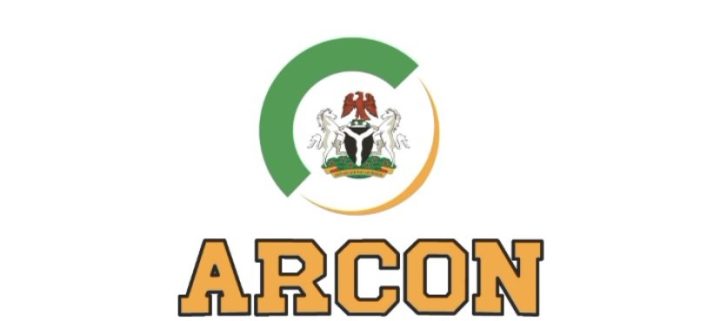The Advertising Regulatory Council of Nigeria (ARCON) has issued a stern warning to the public regarding the rising use of artificial intelligence (AI) images to promote fraudulent Ponzi schemes across the country. The regulatory body expressed concern over the sophistication of these scams, which now employ AI-generated visuals and manipulated media to mislead unsuspecting Nigerians into investing in schemes that promise unrealistic financial returns.
ARCON noted that the misuse of AI-generated content in advertising has introduced a dangerous trend that could erode trust in legitimate communication channels if not swiftly addressed. The agency explained that scammers are increasingly creating fake images of well-known personalities, fabricated endorsements, and manipulated brand logos using AI tools, making fraudulent advertisements appear authentic. This deceptive approach, ARCON warned, is designed to lure people into parting with their hard-earned money.

According to the Director-General of ARCON, Dr. Olalekan Fadolapo, the proliferation of Ponzi schemes disguised with the help of AI is not only an attack on consumer trust but also a direct threat to Nigeria’s advertising industry and broader financial ecosystem. He stressed that ARCON, in line with its mandate, is working closely with security agencies, financial regulators, and technology experts to track down the operators of such schemes and bring them to justice.
He further explained that the council has intensified monitoring of online platforms where most of these fake adverts are circulated, particularly on social media. ARCON is also collaborating with digital platforms to swiftly take down misleading content and identify sources of false advertising. “The use of AI-generated content to deceive Nigerians is criminal, unethical, and unacceptable. We want to make it clear that any advertiser or platform found culpable will face the full wrath of the law,” he said.
In addition to the crackdown, ARCON is rolling out a nationwide consumer education campaign to help Nigerians identify red flags in financial advertisements. The campaign will highlight common tactics used by Ponzi promoters, including promises of abnormally high returns in a short period, lack of transparency in business models, and unverifiable endorsements. The regulatory body stressed that public awareness remains the strongest line of defense against fraud, urging Nigerians to exercise due diligence before committing funds to any investment.
The agency also revealed that several reports of Nigerians losing millions of naira to AI-powered scams have reached its offices in recent months. Victims described how they were convinced by professional-looking images and video clips featuring celebrities and corporate executives purportedly endorsing the fraudulent schemes. In reality, the visuals were AI-manipulated, and none of the individuals had any connection to the promotions.
Industry stakeholders have welcomed ARCON’s intervention, noting that the spread of fake content threatens both financial stability and brand integrity. Financial experts argue that unchecked Ponzi schemes not only rob Nigerians of their savings but also discourage legitimate investment initiatives, creating a hostile environment for innovation and entrepreneurship. They called for tighter cooperation between ARCON, the Central Bank of Nigeria (CBN), the Securities and Exchange Commission (SEC), and law enforcement agencies to stamp out fraudulent schemes before they gain traction.
ARCON’s warning also reflects growing global concerns about the misuse of AI in spreading disinformation and committing fraud. While AI technology holds immense promise for innovation across industries, its abuse in deceptive advertising raises critical ethical and regulatory challenges. Analysts believe that Nigeria, like many other countries, must strike a balance between encouraging innovation and protecting consumers from abuse.
Civil society groups have urged ARCON to move beyond warnings and establish a transparent reporting mechanism that allows victims or whistleblowers to report suspected fraudulent adverts quickly. They further suggested that digital literacy programs should be integrated into Nigeria’s educational system to prepare young people for the complexities of navigating online spaces, where manipulated content is becoming harder to distinguish from reality.
For now, ARCON has appealed to Nigerians to always verify the authenticity of investment opportunities and endorsements before making commitments. The council urged members of the public to rely on credible financial institutions, licensed investment firms, and official regulatory bodies for accurate information. “If an offer seems too good to be true, it almost certainly is,” Fadolapo reiterated in his statement.
The crackdown on AI-manipulated Ponzi schemes is expected to intensify in the coming weeks, with ARCON promising stronger enforcement of advertising regulations. Experts argue that this action will not only protect consumers but also strengthen the credibility of Nigeria’s advertising industry, which plays a vital role in supporting economic growth and investment.
As Nigeria continues to embrace digital transformation, the fight against fraudulent schemes disguised with advanced technology highlights the urgent need for vigilance, regulation, and collaboration among stakeholders. ARCON’s stance sends a strong message to fraudsters that the manipulation of AI to exploit Nigerians will not be tolerated, while also reassuring citizens that consumer protection remains a top priority.
Support InfoStride News' Credible Journalism: Only credible journalism can guarantee a fair, accountable and transparent society, including democracy and government. It involves a lot of efforts and money. We need your support. Click here to Donate
